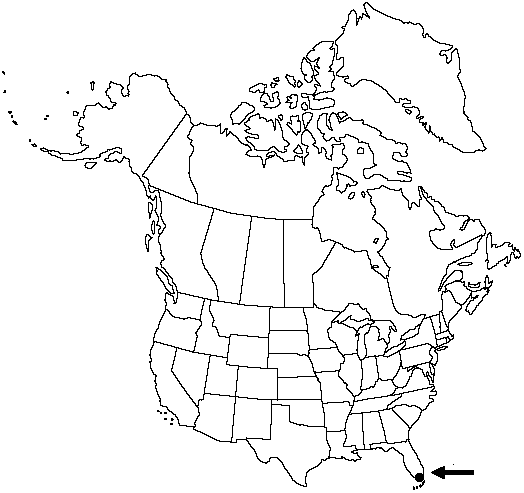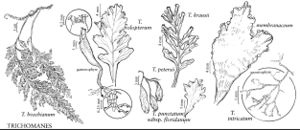Difference between revisions of "Trichomanes krausii"
Icon. Filic. 2: plate 149. 1830.
FNA>Volume Importer |
imported>Volume Importer |
||
| Line 8: | Line 8: | ||
}} | }} | ||
|common_names=Kraus's bristle fern | |common_names=Kraus's bristle fern | ||
| + | |special_status={{Treatment/ID/Special_status | ||
| + | |code=F | ||
| + | |label=Illustrated | ||
| + | }} | ||
|basionyms= | |basionyms= | ||
|synonyms={{Treatment/ID/Synonym | |synonyms={{Treatment/ID/Synonym | ||
| Line 48: | Line 52: | ||
|publication title=Icon. Filic. | |publication title=Icon. Filic. | ||
|publication year=1830 | |publication year=1830 | ||
| − | |special status= | + | |special status=Illustrated |
| − | |source xml=https:// | + | |source xml=https://bibilujan@bitbucket.org/aafc-mbb/fna-data-curation.git/src/bb6b7e3a7de7d3b7888a1ad48c7fd8f5c722d8d6/coarse_grained_fna_xml/V2/V2_603.xml |
|genus=Trichomanes | |genus=Trichomanes | ||
|species=Trichomanes krausii | |species=Trichomanes krausii | ||
Revision as of 21:14, 27 May 2020
Plants epiphytic or on rock. Stems long-creeping, threadlike, bearing scattered leaves; stems covered with dark hairs of 2 types: 2-celled glandular hairs and elongate rhizoidlike hairs; roots absent. Leaves oblong, 1–2-pinnatifid, 1–5 × 0.5–1.5 cm, with dark, stellate marginal hairs between lobes, 2-celled glandular hairs on petioles and veins, and dark rhizoidlike hairs on petioles and sometimes abaxially on blades; petioles shorter than blades. Venation pinnate with unconnected false veins. Soral involucres terminal on lobes near leaf apices, conic, flaring at mouth; involucre lips narrowly dark edged. Gametophytes composed entirely of branching filaments. Gemmae composed of short filaments of undifferentiated cells. 2n = 136.
Habitat: On rock walls of limestone sinks or epiphytic on trunks and roots of trees growing in and around limestone sinks
Elevation: below 10 m
Distribution

Fla., Mexico, West Indies, Central America, South America.
Discussion
Trichomanes krausii is fairly common in and around limestone sinks in hardwood forests in Dade County, Florida. Gametophytes may be found occasionally in the vicinity of sporophytes, but they do not form large independent colonies.
Selected References
None.
